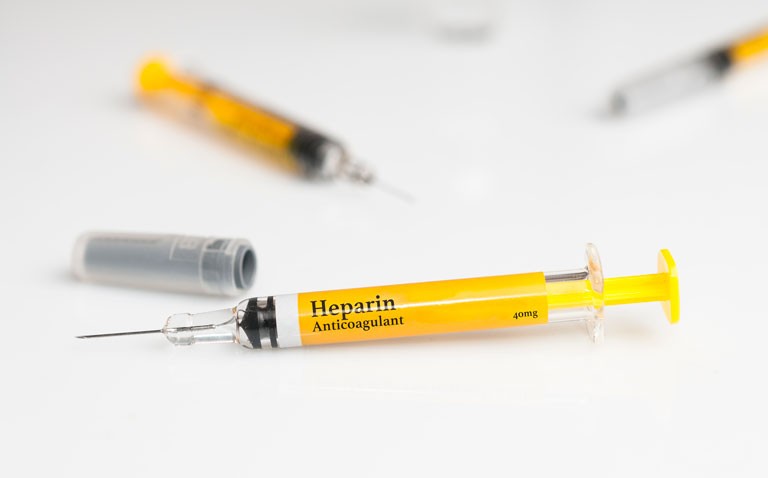Inhaled unfractionated heparin appears safe and leads to an improvement in oxygenation among patients hospitalised with COVID-19
Inhaled unfractionated heparin can be safely used in hospitalised patients with COVID-19 and improves oxygenation according to a retrospective analysis by researchers from Saint George Hospital, Intensive Care Unit, Sydney, Australia.
There is a strong rational for the use of inhaled unfractionated heparin (IUH) in the treatment of patients with COVID-19, given the evidence that heparin blocks spike protein binding and/or infection by pseudo-typed virus and authentic COVID-19.
Moreover, in a preliminary and pre-pandemic study, the use of IUH in patients with or at risk of acute respiratory distress syndrome, the drug was was well tolerated and there was less progression of lung injury and an earlier return home.
For the present study, the Australian team recruited hospitalised patients infected with COVID-19 and who had shown clinical deterioration despite standard of care and offered them treatment with IUH. The drug was nebulised and given at a dose of 5000IU every 8 hours or initially at 10,000 IU every four hours and if tolerated increased to 25,000 IU every six hours.
The outcomes of interest were activated partial thromboplastin time (APTT) and the highest level achieved during treatment. Efficacy outcomes were oxygenation which was assessed by the ratio of oxygen saturation to the fraction of inspired oxygen (S/F ratio).
Findings
A total of 98 patients with an average age of 66 years (52% male) were enrolled in the study, 79 of whom were intubated and the median time from COVID-19 symptom onset to use of IUH was 6.7 days for non-intubated patients compared to 8 days among intubated patients.
In 3 patients on UFH, APTT levels did not significantly increase from a baseline of 72 to a peak of 84 seconds (p = 0.17).
The S/F ratio decreased by an average of 9.2 units each day prior to IUH, suggesting a deterioration of oxygenation although after commencement of therapy, this began to increase compared to baseline in all patients and for each of the doses used (p < 0.001) with intubated patients showing the greatest improvement.
In discussing these results, the authors noted that the use of IUH was associated with improved oxygenation. However, an important caveat was that the study did not have a control group and that IUH was administered at different doses and durations, together with the fact that COVID-19 severity was also not uniform.
Nevertheless, they argued that this heterogeneity was a potential advantage, demonstrating that the use of IUH was safe across the COVID-19 disease spectrum. While based on a case series, the authors added that there are several ongoing trials examining the value of IUH in patients hospitalised with COVID-19 and which should report in the future.
Citation
van Haren FMP et al. Inhaled nebulised unfractionated heparin for the treatment of hospitalised patients with COVID‐19: A multicentre case series of 98 patients Br J Clin Pharmacol 2022.










